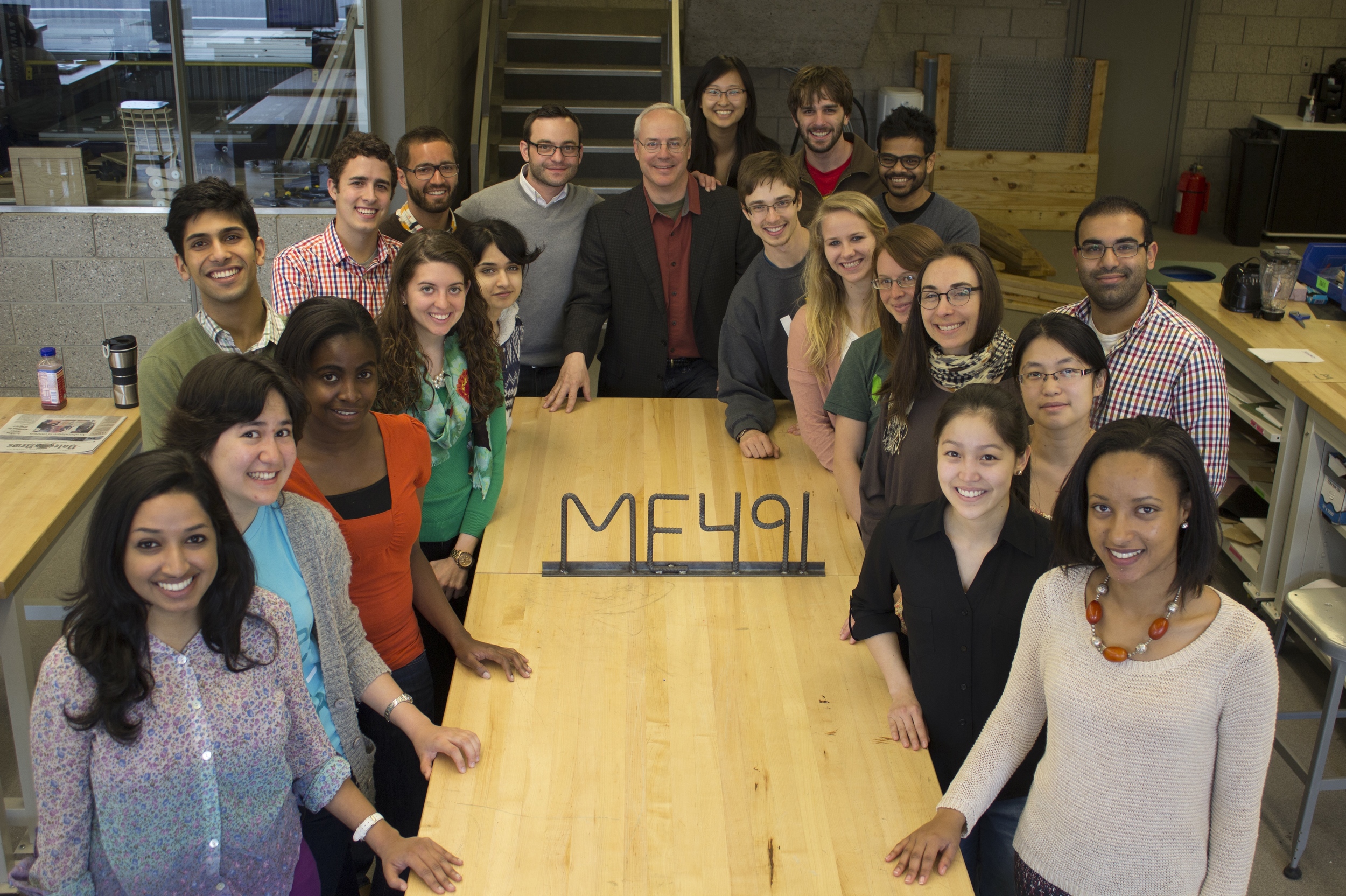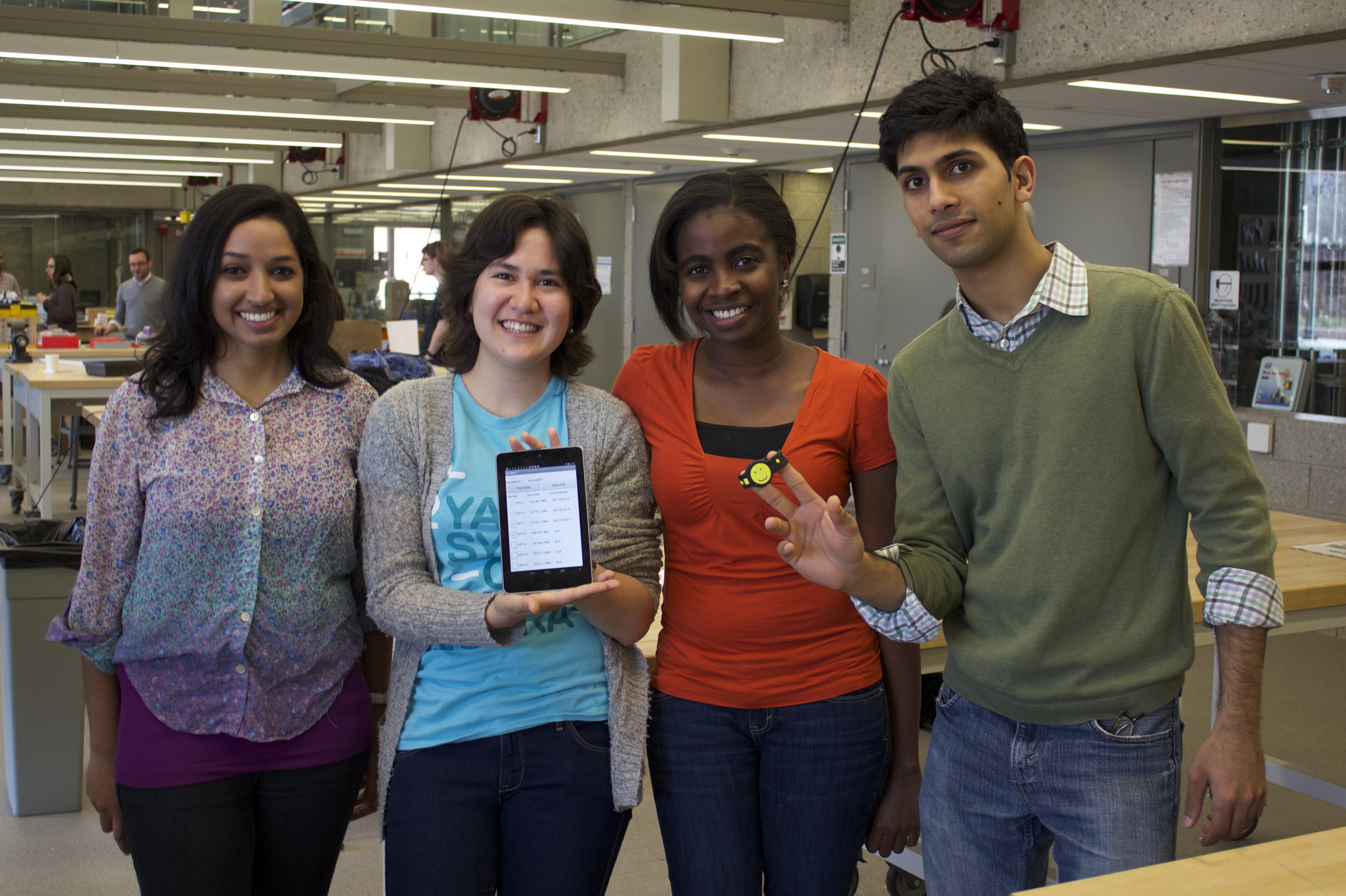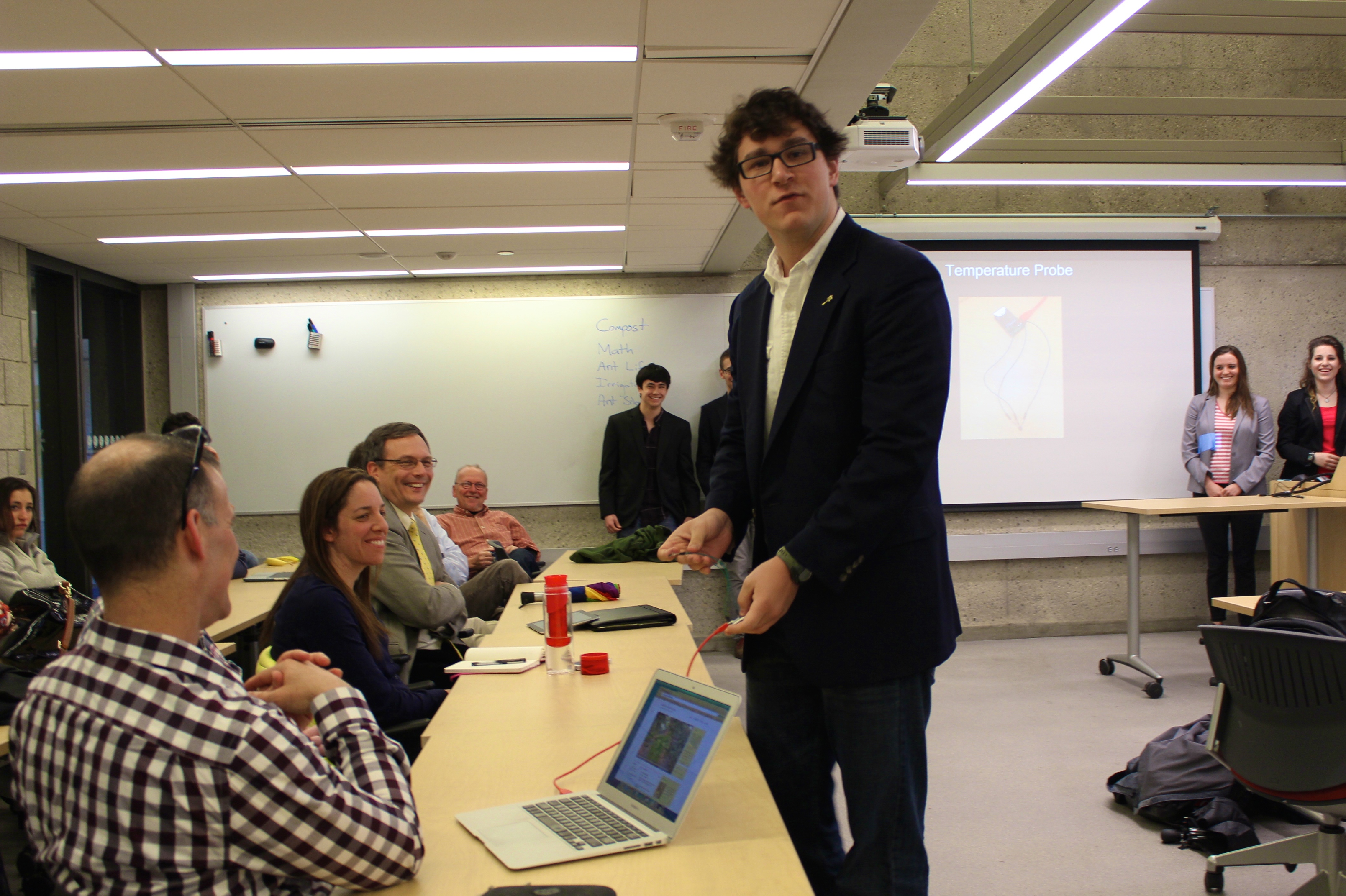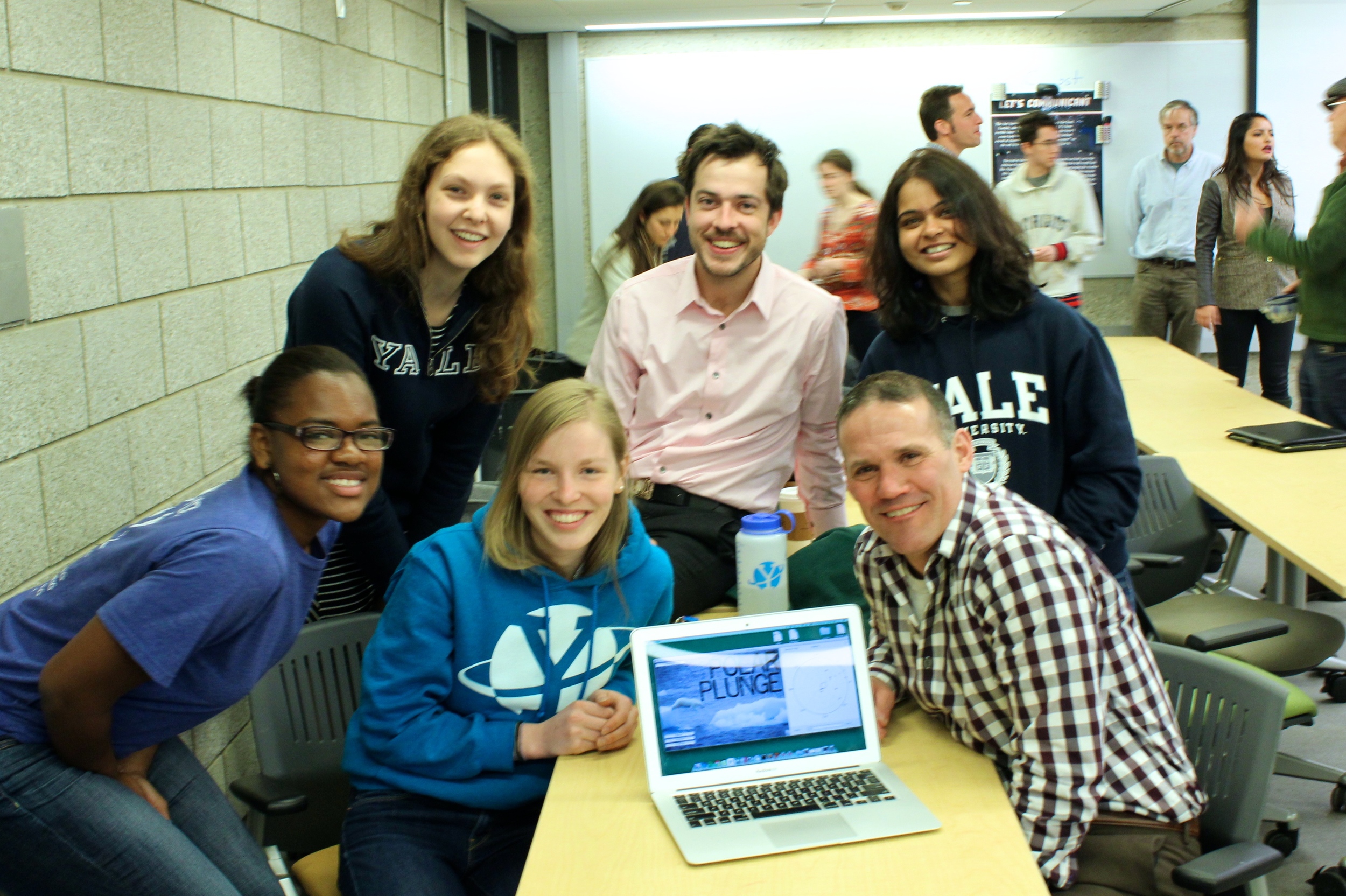The students in the design-based classes taught in the CEID have been presenting their final projects this week and last. The students in these classes ave been working all term to both acquire the skills to solve the problems they faced and fully understand the problem. Once the infrastructure for innovation was laid, the students began designing and prototyping solutions.

In MENG 491, Appropriate Technology and the Developing World, the problem Instructors Joe Zinter and Robert Hopkins posed vaccine delivery in developing countries as the challenge for the class to address. Students dove into “the last mile” problem and learned about the final leg of the journey of vaccine delivery where the system does not guarantee safe delivery of unspoiled vaccines. There was also a focus on ways to encourage mothers to actually vaccinate their children once the clinics have these vaccines. The result was four student teams, each with solutions to different issues with vaccine delivery in the developing world.

The solutions included a system for alerting clinicians when the vaccines have fallen out of the proper temperature range and rethinking the packaging of vaccines. These two teams aimed to prevent vaccines from spoiling be either becoming to warm or cool and becoming unusable in addition to letting clinic workers know when vaccines were unusable to prevent delivery of the now dangerous drug. Another team designed a single use, modular vaccine system for waste reduction, and ease to the patients. A fourth and final team designed an app and bracelet to track, store, and make available to doctors information about which vaccines children had received with RFID scanners. Additionally they have begun to lay the infrastructure to actually implement this system and plan to travel this summer to receive feedback on their system for the doctors, patients, and mothers currently involved.

The ENAS 118 class has also been hard at work solving design challenges Yale based clients from the Peabody, Yale Farm, Marsh Botanical Gardens, the Yale Art Gallery, and the Math 115 course posed to them. The products this class of mostly inexperienced freshman came up with were amazing! One Yale Farm team designed a ‘Postman’ a simple wooden post with some electronics to monitor the temperature and humidity of the covered beds throughout the winter and colder months which would connect to wifi save information to a database, and alert the client when the cover should be lowered or raised. Other projects included an irrigation system for the Marsh Botanical Gardens and a computer game “Polar Plunge”, for the Math 115 class. One Peabody team designed an informative game about ants and the way they follow paths of pheromones to engage children in an otherwise adult centered photo exhibit. As younger students, the chance these potential engineers got to experience the design process, learn how to use the resources in the CEID, and get a taste of actually creating something was critical to building up the next class of innovators.

The Green Engineering and Sustainable Design class will present their final projects this coming week. In this class, Professor Julie Zimmerman has encouraged a focus on modular design with sustainable parts that can easily be disassembled and reused at the end of its life. One student group is making a bike lock that will attach through a flower pot. The product has an unobtrusive design and components that can easily come apart. Make sure to come by the CEID next week to hear about their projects!










